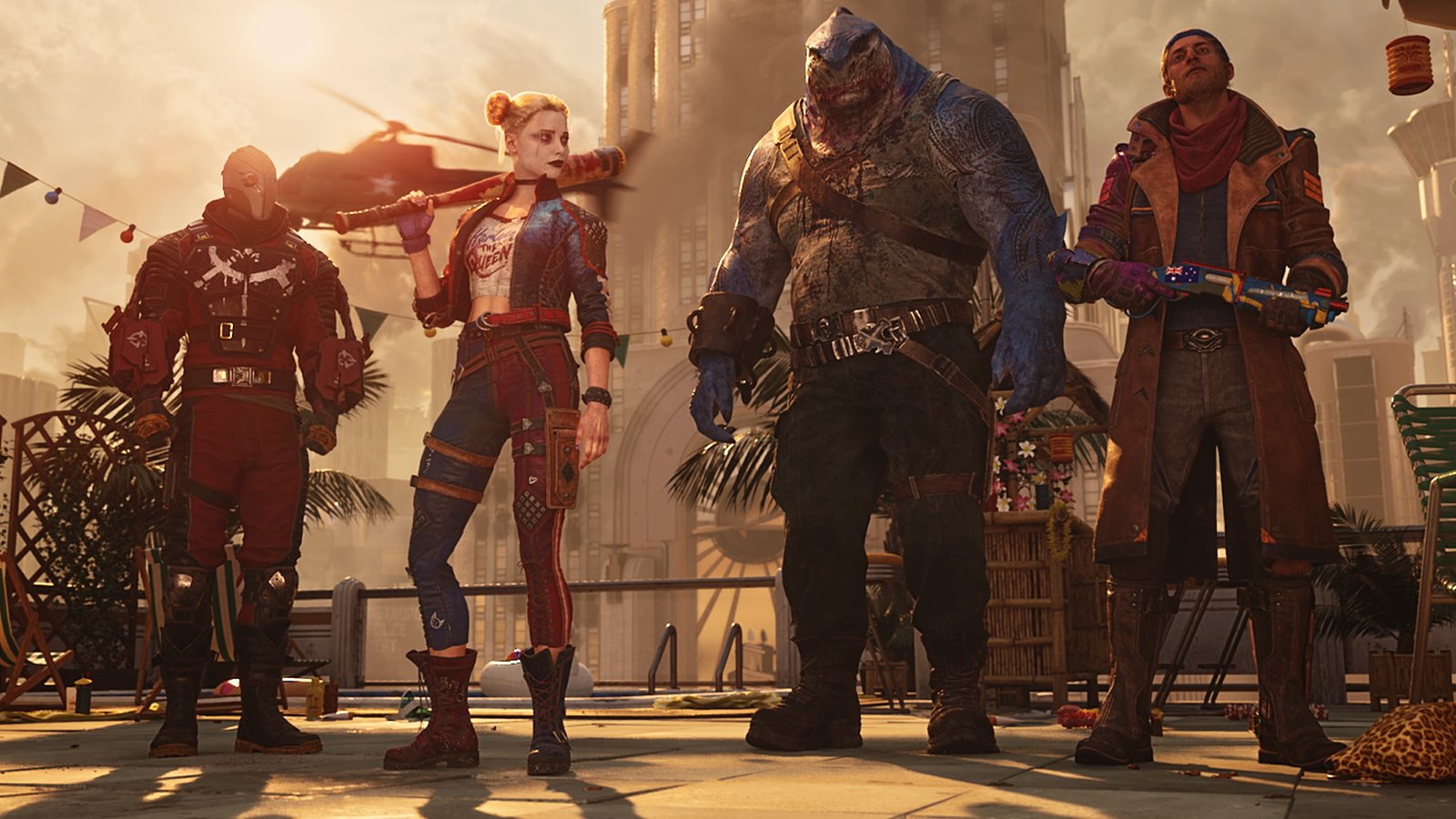The gaming community is abuzz with speculation about “Suicide Squad: Kill The Justice League,” developed by Rocksteady Studios. This game, set in an expansive open-world Metropolis, promises a unique blend of RPG progression, cooperative gameplay, and dynamic combat. However, concerns are mounting that it might follow in the problematic footsteps of Rocksteady’s previous title, “Batman: Arkham Knight.”
Key Highlights
- “Suicide Squad: Kill The Justice League” promises an ambitious four-player cooperative experience in an open-world Metropolis.
- The game features RPG progression systems and a focus on aerial traversal and combat.
- Criticism centers around the game’s live-service model and repetitive gameplay elements.
- Comparisons are being drawn with the problematic launch of “Batman: Arkham Knight,” particularly regarding performance issues and development decisions.

Ambitious Gameplay Meets Skeptical Reception
“Suicide Squad: Kill The Justice League” sets itself apart with an emphasis on high-flying combat and movement abilities unique to each character. The game’s setup in Metropolis provides varied landscapes for creative traversal and combat. Despite these innovative features, early previews and player feedback indicate a mixed reception. The game’s focus on a live-service model, with repetitive missions and basic objectives, has drawn criticism, leading some to fear a repeat of the issues faced by “Batman: Arkham Knight”.
The Shadow of Arkham Knight
When “Batman: Arkham Knight” was released, it suffered from numerous technical issues, especially on the PC version. Players reported performance problems like stuttering, audio glitches, and texture degradation. These issues persisted even after re-releases and patches, leading to frustration within the gaming community.
Rocksteady’s decision to embrace a live-service model with “Suicide Squad: Kill The Justice League” has also raised eyebrows, as it marks a departure from the studio’s traditional approach. The goal is to build a global community around the game, with social features and competitive leaderboards.
Potential Repetition of History
The parallels between the two games are striking. “Batman: Arkham Knight” faced significant criticism for its handling of the PC version and the long wait for fixes. It was a situation compounded by the fact that issues with the game were known for months before its release, yet it was still shipped. The focus on the console versions led to the PC version being outsourced and receiving less attention, resulting in a product that didn’t meet player expectations.
With “Suicide Squad: Kill The Justice League,” there’s concern that Rocksteady may be over-ambitious, potentially leading to a game that doesn’t fully deliver on its promises. The shift to a live-service model is a significant change, and whether this will enhance the gaming experience or lead to further issues remains to be seen.
A Waiting Game
As “Suicide Squad: Kill The Justice League” approaches its launch, players and critics alike are watching closely. Will it overcome the shadow of “Arkham Knight” and deliver a groundbreaking experience, or will it repeat past mistakes? Only time will tell if Rocksteady can balance its ambitious vision with the technical execution needed to avoid the pitfalls that plagued “Arkham Knight.”


















